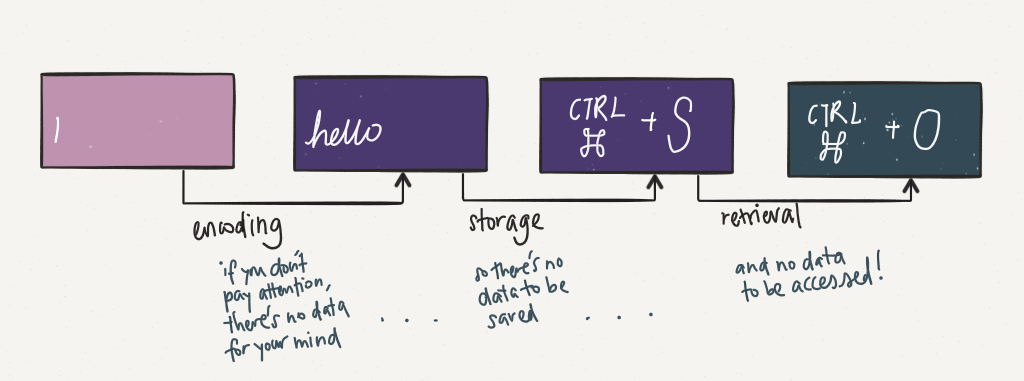Many of my clients who feel depressed tell me they’re worried that there’s something wrong with their memory. They wonder aloud if they’re having early dementia. The worry eats into their sense of peace, and they’re afraid. But here’s the thing, if you’re depressed, you’re much likelier to have memory loss. No matter how old or young you are. Here’s why.
The things that happen around you- what you see, hear, do, feel, taste- are like movements your fingers make above your keyboard. They can be stroking your keys, dancing above them, or tapping lightly. If you hit the keys with enough strength, then letters and numbers appear. But if you don’t save your file and quit the program, you won’t have any trace of your notes. There’s nothing to access.

Your memory is a lot like that. When you pay attention, it’s like your fingers are hitting the keys, rather than making random movements. They register something on your screen. Also known as the encoding process, where information is in a state that can be stored. Saving your document is the storage process. And then, to access your documents is the retrieval process. In short, when you’re feeling depressed, you’re likely to be less focused on what’s around you. No keys are being hit, so no words and sentences appear. If no encoding happened, then there’s no information to be stored, much less retrieved. That’s why someone else may get upset with you for ‘never remembering anything’. If your brain didn’t process what was going on, then there is nothing for you to forget.
And how do you combat depression and memory loss during these times then? Reminding yourself to be mindful and not being upset with yourself is key. It’s a muscle to grow, a habit to develop. Remember, you weren’t always lacking concentration. This grew over time. And with time, patience and effort, you can turn the situation around.





